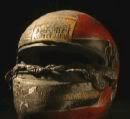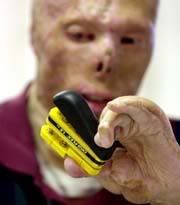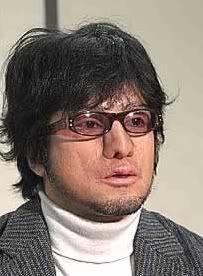i heard he sued the race track coz of how long it took the marshalls to get to him. he won 90,0000 yen!!
he suffered severe burns to his face i believe?
Massive pile-up in the rain at Oulton Park
- jungle-jim
- Posts: 2252
- Joined: Tue Dec 05, 2006 9:43 pm
- Location: naaaarwich
Firtst Vid - That looks very expensive. But have a look at the tyres on the Ferrari at the end, SLICKS !
Second Vid - Not good, as Ben mentioned, I heard that somebody in this but thought it was in one of the Prosches :?:
Third Vid - Good example of how the proper equipment helps, but his visor did melt to his face,have another look
Second Vid - Not good, as Ben mentioned, I heard that somebody in this but thought it was in one of the Prosches :?:
Third Vid - Good example of how the proper equipment helps, but his visor did melt to his face,have another look
- jungle-jim
- Posts: 2252
- Joined: Tue Dec 05, 2006 9:43 pm
- Location: naaaarwich
- jungle-jim
- Posts: 2252
- Joined: Tue Dec 05, 2006 9:43 pm
- Location: naaaarwich
a quote from the court case...
Mainichi Shimbun
"I still love car racing," Ota said after the ruling.
Tetsuya Ota fell well short of getting the 300 million he had been asking from the five organizers and the marshal of the 1998 race where he suffered severe burns that ruined his driving career, but received the vindication he had been looking for.
"The crash was caused when the flag car suddenly slowed down," Presiding Judge Tsuyoshi Ono said. "Firefighting and rescue preparations were also not up to scratch."
Ota was delighted with the court win. "I would like to thank everybody who has supported me along the way," the 43-year-old once referred to as Japan's best Ferrari handler said in the wake of the ruling.
Those ordered to pay Ota include Fuji Speedway in Shizuoka Prefecture, where the horrifying crash occurred, and TV Tokyo, which broadcast the race.
None of the defendants have stated whether they will appeal against the ruling, including TV Tokyo, which spent the entirety of the court battle arguing that it could not be regarded as one of the race organizers.
Court records said Ota's terrifying crash occurred during a warm-up lap before the official start of the race in May 1998. Ota's car burst into flames after slamming into another vehicle that had already stopped because of a different accident.
Ota was stuck in the fireball for almost 90 seconds before rescuers finally dragged him out. He sustained burns across his body and is still unable to move his right arm, right shoulder and fingers properly.
Judges ruled the flag car should have been traveling at about 60 kilometers per hour instead of the 150 kilometers it was doing, and caused the accident by slowing too quickly. Ota was forced to unexpectedly drop his pace and, as a result, he lost control and smash into the stationary vehicle.
They also decided that Ota was left in his flaming vehicle for too long and organizers had neglected their responsibility to get him out of the burning car within 30 seconds of the blaze erupting.
A pre-race agreement between Ota and the organizers not to pursue legal action in the event of an accident was also dismissed as unacceptable.
"A letter that tries to eliminate one party from taking any responsibility for major accidents caused by gross negligence is incorrect, unfair and not void in this court," presiding judge Ono said.
TV Tokyo's attempt to avoid being regarded as one of the race organizers was dismissed by the court, which ruled it was involved in sufficient decisions made about the race to be viewed as one of the organizations directly concerned with running it.
Ota made his debut in 1982, racing in the Formula 3000 series before switching to GT car races in which he competed in four straight Le Mans 24-hour races. (Mainichi Shimbun, Japan, Oct. 29, 2003)"
Mainichi Shimbun
"I still love car racing," Ota said after the ruling.
Tetsuya Ota fell well short of getting the 300 million he had been asking from the five organizers and the marshal of the 1998 race where he suffered severe burns that ruined his driving career, but received the vindication he had been looking for.
"The crash was caused when the flag car suddenly slowed down," Presiding Judge Tsuyoshi Ono said. "Firefighting and rescue preparations were also not up to scratch."
Ota was delighted with the court win. "I would like to thank everybody who has supported me along the way," the 43-year-old once referred to as Japan's best Ferrari handler said in the wake of the ruling.
Those ordered to pay Ota include Fuji Speedway in Shizuoka Prefecture, where the horrifying crash occurred, and TV Tokyo, which broadcast the race.
None of the defendants have stated whether they will appeal against the ruling, including TV Tokyo, which spent the entirety of the court battle arguing that it could not be regarded as one of the race organizers.
Court records said Ota's terrifying crash occurred during a warm-up lap before the official start of the race in May 1998. Ota's car burst into flames after slamming into another vehicle that had already stopped because of a different accident.
Ota was stuck in the fireball for almost 90 seconds before rescuers finally dragged him out. He sustained burns across his body and is still unable to move his right arm, right shoulder and fingers properly.
Judges ruled the flag car should have been traveling at about 60 kilometers per hour instead of the 150 kilometers it was doing, and caused the accident by slowing too quickly. Ota was forced to unexpectedly drop his pace and, as a result, he lost control and smash into the stationary vehicle.
They also decided that Ota was left in his flaming vehicle for too long and organizers had neglected their responsibility to get him out of the burning car within 30 seconds of the blaze erupting.
A pre-race agreement between Ota and the organizers not to pursue legal action in the event of an accident was also dismissed as unacceptable.
"A letter that tries to eliminate one party from taking any responsibility for major accidents caused by gross negligence is incorrect, unfair and not void in this court," presiding judge Ono said.
TV Tokyo's attempt to avoid being regarded as one of the race organizers was dismissed by the court, which ruled it was involved in sufficient decisions made about the race to be viewed as one of the organizations directly concerned with running it.
Ota made his debut in 1982, racing in the Formula 3000 series before switching to GT car races in which he competed in four straight Le Mans 24-hour races. (Mainichi Shimbun, Japan, Oct. 29, 2003)"
- jungle-jim
- Posts: 2252
- Joined: Tue Dec 05, 2006 9:43 pm
- Location: naaaarwich








